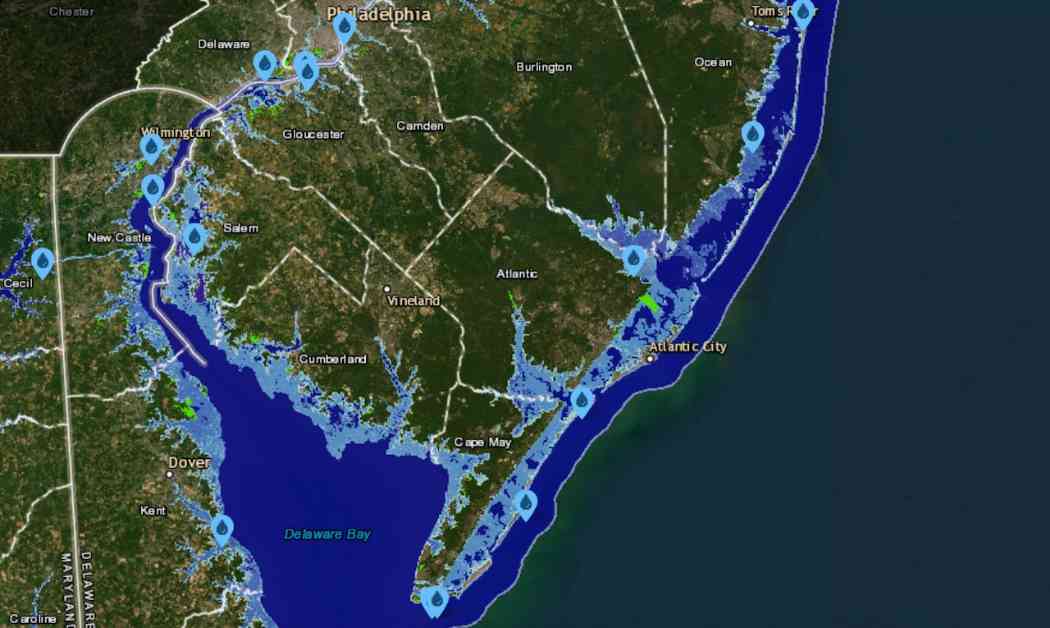Sea level rise is a pressing concern for many in New Jersey, as climate change continues to impact the state. The National Oceanic and Atmospheric Administration (NOAA) has provided an interactive map that shows the potential effects of rising sea levels on the Jersey Shore and beyond.
According to experts, increased carbon emissions are causing land-based ice sheets and glaciers to melt, leading to thermal expansion of the ocean and coastal sea level rise. It is predicted that sea levels along the nation’s coasts could rise by at least 2 feet by the end of this century due to human-caused climate change.
Newly proposed regulations in New Jersey would require new structures to be built five feet higher than existing flood elevations set by FEMA. This means that areas like Holly Park, Cedar Beach, Ocean Gate, Toms River, and towns along the Jersey Shore could face inundation with a 5-foot rise in sea level.
Experts at Rutgers University have noted that the sea level along New Jersey’s coast has already risen 1.5 feet between 1911 and 2019, compared to half a foot globally. Climate scientist Robert Kopp emphasized the importance of reducing greenhouse gas emissions to mitigate future sea level rise and the need for adaptation to protect infrastructure and land-use in the face of climate change.
A Rutgers analysis highlighted the potential impact of future flooding on renters and homeowners in New Jersey, with over 307,000 parcels of land in the 100-year floodplain at risk. This includes more than 224,345 residential homes, totaling over $250 billion in assessed value, with $156 billion in residential properties alone.
NOAA’s interactive map offers insights into how different parts of New Jersey could be affected by sea level rise, while the New Jersey Department of Environmental Protection provides additional information on the state’s response to rising sea levels.
To learn more about the potential risks of sea level rise in New Jersey and explore interactive maps, visit coast.noaa.gov/slr and https://dep.nj.gov/slr/. Stay informed and prepared to address the challenges of climate change in your area.


